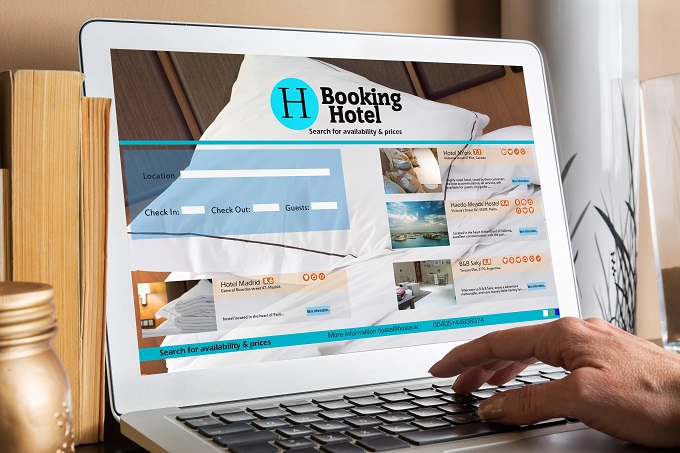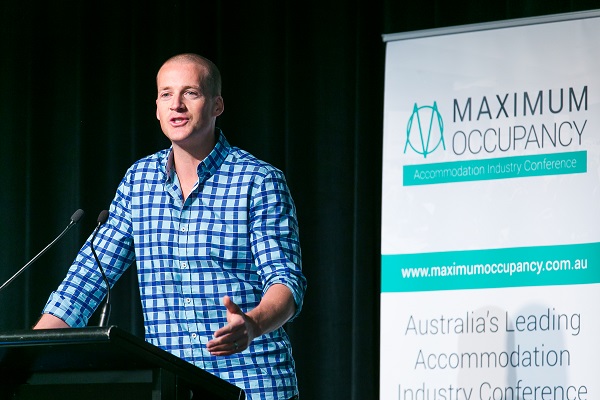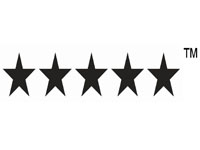
Why accom marketing is so hard – and what to do about it
If you’ve been in the accommodation industry long enough, you’d remember when having a few wholesalers’ contracts, a fancy brochure and a telephone number were pretty much all you needed to stay in business.
The bad news is that the good old days are gone for good.
Marketing is getting more and more complicated, and it’s unlikely that the trend will revert any time soon, so you’d better be prepared to overcome new obstacles and challenges every week.
An unimaginable level of sophistication and complexity
[pro_ad_display_adzone id=”27469″ align=”left” padding=”10″]“Intelligence is the ability to adapt to change,” said Stephen Hawking… and now more than ever, accommodation needs to be pretty intelligent. The industry in 2018 looks like Darwinian natural selection on steroids and in order to survive, hotels and resorts will have to adapt, evolve or be extinct.
From the early search engine optimisation hacks of the ’90s to the generic-keyword ads of the early ’00s, from Chris Anderson’s ‘Billboard Effect’ to AI chatbots, hotel marketing has evolved to a level of sophistication and complexity simply unimaginable just a decade ago.
Complex goals = hard work
In order to understand how hotel marketing has become so hard, we need to understand the overarching goal of hotel marketing (If your goals are difficult, then it should be no surprise the related activity is equally arduous).
With that in mind, we humbly offer up Sergio Zyman’s (the legendary Coca-Cola marketing executive) definition of the goal of marketing: the sole purpose of marketing, he wrote, is “to get more people to buy more of your product, more often, for more money.”
Today, most hotel marketers use this definition as their goal and subsequently, they face hard work every day.
Complex challenges = hard work
Hard goals make the work of hotel marketing harder… but on top of that, there are daily tactical challenges as well, for example:
• too much expectation placed on hotel marketers
• not enough support/investment
• too much disconnected technology
• vendor fatigue
• too little actual differentiation in product, pricing and distribution
• new shiny tech objects all the time
• multiple screen sizes/experiences to manage
• historically high results in average daily rate/average occupancy rate and revenue per available room have made it hard to “raise the bar”
• lack of comprehensive reporting systems
• siloed departments (sales vs revenue management vs marketing)
• owners with short-term horizons to flip properties unwilling to invest in direct audience
For this article, we picked five key issues that, in our opinion, contribute to the exceptional difficulty of hotel marketing:
1. Fragmentation
2. Expectations
3. Distribution
4. Apathy
5. Hype
1. Fragmentation
We live in an overconnected world, but when it comes to travel technology, it seems like little has changed since the late 90s. It is not unusual, in fact, for a hotel to have a dozen different providers (property management software, central reservations system, channel manager, booking engine, customer relationship management software, etc.), not communicating with each other.
As this chart from our friends at Snapshot shows: multiple disconnected vendors and systems will inevitably challenge any efforts to drive bookings.
Your marketing operation needs to be a well-oiled machine to outperform the competitive set of accommodation. However, that’s near impossible when you’re juggling disparate vendors, shuttling messages back and forth to make sure everyone is aligned. Worse yet, no one vendor will take full responsibility when campaigns fail and goals aren’t met.
2. Expectations
Another friction point arises whenever owners and asset managers expect marketing executives to perform at unnatural speed, with minimal resources and (yet) be able to provide ever-increasing results.
The misalignment between the management and the marketing team is one of the main reasons why hotel marketing is so hard.
No matter how intimidating your boss might be, if you do not ask for that additional budget you absolutely will need, you’re basically sabotaging your whole department (and potentially your career) from the start. No goal can be achieved without a sufficient and adequate budget.
An AdWords campaign for example, could need $1,000/month to guarantee continuity and return on investment, so if management is immovable and allocates only half of the budget needed, they shouldn’t be surprised when the campaign goes offline by the 15th of each month, harming the final campaign outcome.
Hotel marketers need to ensure their owner’s expectations are aligned with the marketing budget.
3. Distribution
Let’s not forget that distribution (placement of your product) is one of the four ‘Ps’ of classic marketing theory. And nothing is more complex for today’s hotel marketers than managing the distribution landscape (see Spaghetti chart above again)!
For example, you have your channel management strategy correctly mapped and setup, you’re respecting the agreements with all your distribution channels but, out of the blue, you find a cheaper rate, usually sold by an agency you have never heard of before and have no contract with…
Sounds painfully familiar, doesn’t it?
Even though wholesalers created their business model for offline distribution, as their market share started to shrink, their only way many found to survive was unbundling package rates and selling them at a lower price all over the web, creating a Babylon of online offers.
Hotel marketers and revenue managers often have no other options than making ‘test’ bookings on these obscure channels, finding out who is the wholesaler responsible for the contract breach, getting in touch with the respective account manager and, with some luck, stopping the discounted price from spreading, re-establishing price parity, until (eventually) the vicious circle starts all over again.
On top of that, the complexity of juggling room inventory and rates across all the ever-growing endpoints, such as metasearch engines, consortia, etc., usually gives little to no control on the very end of the booking funnel, making even the best marketing teams extremely frustrated.
4. Apathy
If this has always been the way you run your business, why change it now, right?
Wrong.
“There is no growth or success without change,” said Ed Catmull, the brilliant mind behind Pixar. Unfortunately, many hotels start resting on their laurels until they enter a downward spiral of lethargy, from which they wake up only when the proverbial s*it hits the fan and are forced to adapt and improve.
Unfortunately, with record high industry results, too many hotel marketers are suffering from apathy; taking your foot off the pedal and coasting actually makes the job harder in the future.
According to Jamie Adams, vice president of asset management at The Carlyle Group: “Market share is so vital and we won’t gain if we’re not constantly figuring out how to do it better.”
Adams stresses that in the age of daily developments in technology, you have to remain flexible, agile and on your toes. “You’re either moving forward or backwards. The real danger is if you fall behind.”
Getting too comfortable with ‘business as usual’ will eventually yield diminishing returns. Your competition will get smarter, new hotels will enter your market, and suddenly the same rules won’t apply anymore.
And while recklessly going against the grain is never a good idea, you should make sure to find your place in the market, tell a story that is different from your competitive set. Don’t be afraid to try new approaches and experiment, even when (or especially when) the market stagnates, as this will give you an advantage over the competition.
5. Hype
One year in a dog’s life is approximately seven human years and the same formula can be applied to technology. Every day we hear about the ‘Next Big Thing’ that will disrupt the industry (remember Google Glasses?).
But all that glitters is not gold, so it’s important not to get too excited about any new shiny object out there. It’s worth remembering that nine out of ten startups will fail.
The travel industry seems to be obsessed when it comes to unproven new tech that is incompatible with their 23 other existing systems. Some of them could, eventually, become the standard in our industry, but you should not put too much energy and money on something that may or may not work in the next five years.
Key takeaways:
Here’s our five key takeaways for dealing with the inherent difficulties of hotel marketing:
1. Avoid fragmentation
Choose a property management software, channel manager and hotel booking engine that’s integrated with as many third-parties as possible (and willing to create new integrations if/when needed without extra costs). You may not know today what data you will need to pull out tomorrow
2. Manage expectations
If you need more advertising budget, new tools or more people on your team, you better ask for it! Is it better to sound cocky and arrogant or to miss your yearly budget?
3. Regain control over distribution
Restrict your online travel agent partners from using your brand name on search marketing. Bulletproof your wholesalers’ agreements by sticking with dynamic rates only, or by adding clauses to prevent unbundled rates to be sold online.
Make sure to partner with a booking engine/channel manager that provides connection to both metasearch engines and a global distribution system, in order to maximise your reach and regain control of your distribution.
4. Avoid apathy
A mobile website and a good booking engine are not enough anymore. Accommodation marketing has reached an incredibly high level of sophistication, as we stated earlier, so, if you want to be prepared to kick some butt, you may want to have something new and different in your quiver.
5. Buzzwords are just buzzwords
Some technologies are still at their infancy stage. And some of them will never be a fit for your hotel anyway. So, if your average guest is 60 years old, you could probably drop that brand new Snapchat ad campaign.
Tambourine is a US-based marketing, booking and distribution service that helps hotel and travel marketers sort it all out. It delivers a 360º program that reduces stress and increases revenue.







